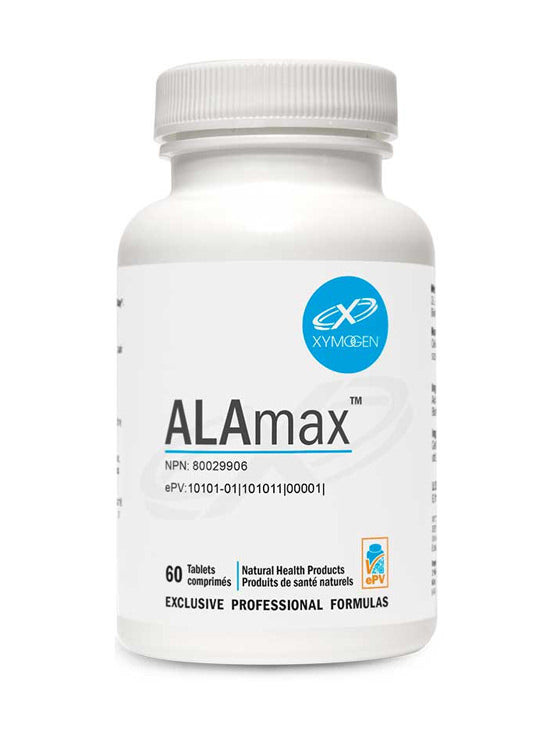
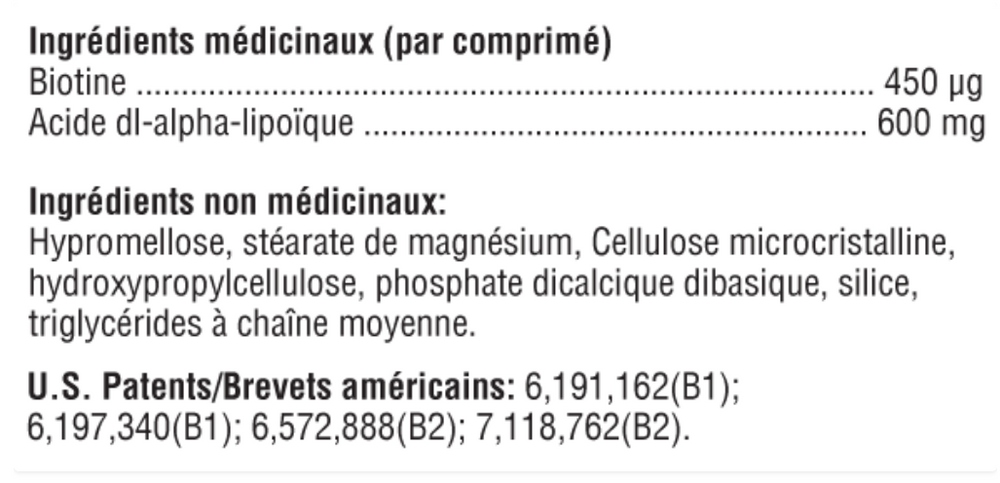
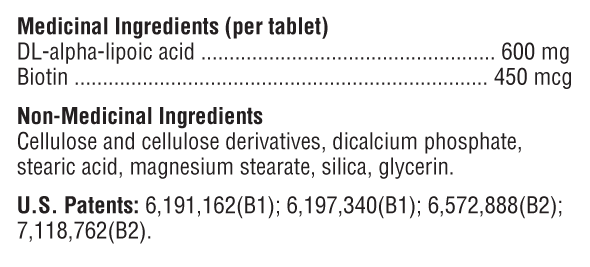
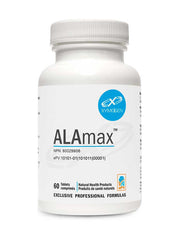
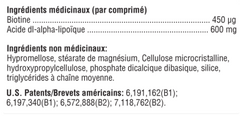
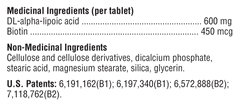
ALAmax
- 101.99$
0.00$- 101.99$
- Unit price
- per
Description
x- Provides antioxidants for the maintenance of good health
- Helps promote healthy glucose metabolism
- Helps metabolize lipids, carbohydrates and proteins
- Helps prevent biotin deficiency
Alpha-lipoic acid (ALA) is a water- and fat-soluble eight-carbon disulfide compound that is synthesized in small amounts in the liver and other tissues. Oral supplementation readily crosses the blood-brain barrier after absorption in the small intestine, enters the portal vein, and is distributed via the systemic circulation. Once in tissues, ALA is found inside and outside cells, including within mitochondria where it functions naturally as a coenzyme for the oxidation of pyruvate, alpha-ketoglutarate, and branched-chain amino acids.
Researchers have recently identified the mechanisms of action of lipoic acid related to the maintenance of metabolic health. It has a direct binding site at the tyrosine kinase domain of the insulin receptor. ALA appears to modulate 5'-AMP-activated protein kinase and PPAR-regulated genes, activate PPAR-alpha and PPAR-gamma, and support PPAR-gamma mRNA and protein expression in cardiac tissue and aortic smooth muscle.
Controlled-release technology supports the effectiveness of alpha-lipoic acid by helping to maintain blood sugar levels already within the normal range. Data from a 12-week clinical study indicate that supplementing with ALAmax CRTM (1200 mg daily, divided doses) can support healthy C-peptide levels. C-peptide is used as an indicator of insulin sensitivity.
Alpha-lipoic acid effectively neutralizes a variety of free radicals, including oxygen radicals and ionized metals. This action is particularly beneficial for individuals with higher levels of oxidative stress. Alpha-lipoic acid replenishes vitamins C and E, increases glutathione levels in tissues, and helps maintain the proper ratio of reduced to oxidized coenzyme Q10 in mitochondria. Additionally, alpha-lipoic acid can help the body rid itself of heavy metals.
Healthy endothelial-mediated vasodilation is accepted as a surrogate marker for cardiovascular health and may be affected by the synthesis, bioavailability, or action of nitric oxide (NO). Increased oxidative stress appears to play an important role in the neutralization or inactivation of NO. The antioxidant properties of ALA, along with its demonstrated safety and potency, qualify it as a prime candidate to evaluate its ability to support healthy endothelial function.
Alpha-lipoic acid's ability to improve energy metabolism and reduce oxidative stress hints at its ability to support healthy mitochondrial function with age.
Biotin was added because chronic administration of lipoic acid reduces the activities of pyruvate carboxylase and beta-methylcrotonyl-CoA carboxylase in vivo by competing with biotin.
Produits recommandés
Produits récemment consultés
- Choosing a selection results in a full page refresh.




